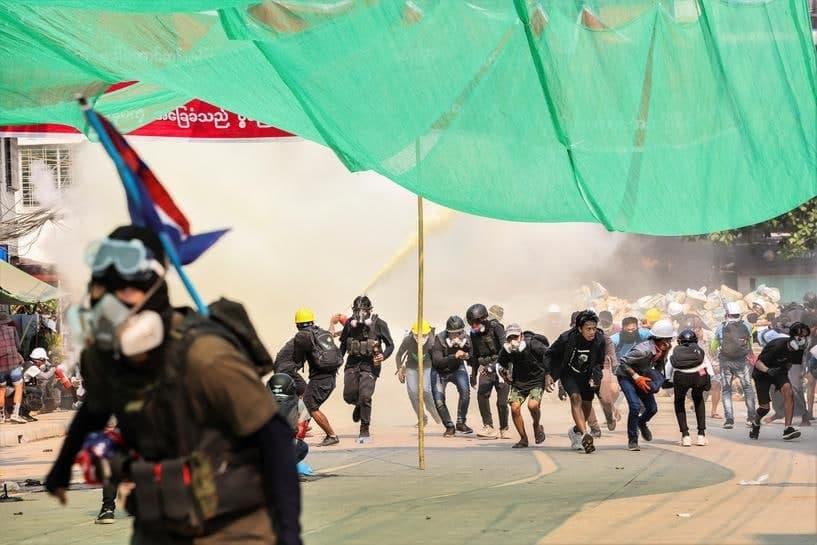YANGON, March 18 (Reuters) - Myanmar faced growing isolation on Thursday (Mar 18) with increasingly limited Internet services and its last private newspaper ceasing publication as the military built its case against ousted elected leader Aung San Suu Kyi.
Nobel peace laureate Aung San Suu Kyi was overthrown and detained in a Feb 1 military coup that triggered mass protests across the country that the security forces have struggled to suppress with increasingly violent tactics.
The total documented number of people killed in the unrest stood at 217 but the actual toll was probably much higher, the Assistance Association for Political Prisoners activist group said.
Western countries have condemned the coup and called for an end to the violence and for the release of Aung San Suu Kyi and others. Asian neighbours have offered to help find a solution to the crisis.
Large parts of an economy already reeling from COVID-19 have been paralysed by the protests and a parallel civil disobedience campaign of strikes against military rule, while many foreign investors are reassessing plans.
The UN food agency warned this week that rising prices of food and fuel across the country could undermine the ability of poor families to feed themselves.
"Whatever happens in Myanmar over coming months, the economy will collapse, leaving tens of millions in dire straits and needing urgent protection," historian and author Thant Myint-U said on Twitter.
Authorities have restricted the Internet services that protesters have been using to organise, with access to Wi-Fi in public areas largely shut off by Thursday. Residents of some towns, including Dawei in the south, reported no Internet at all.
The private Tachilek News Agency in the northeast published photographs of workers cutting cables it said were the fibre links with neighbouring Thailand. Reuters could not verify the report. A junta spokesman did not answer telephone calls seeking comment.
Information within the country is becoming increasingly difficult to verify. More than 35 journalists have been arrested, including 19 who remained in detention, the UN human rights office in Geneva said on Tuesday.
While authorities have ordered some newspapers to shut, others have apparently been forced to close for logistical reasons. The last private newspaper stopped publishing on Wednesday. State-run media has not been effected.





